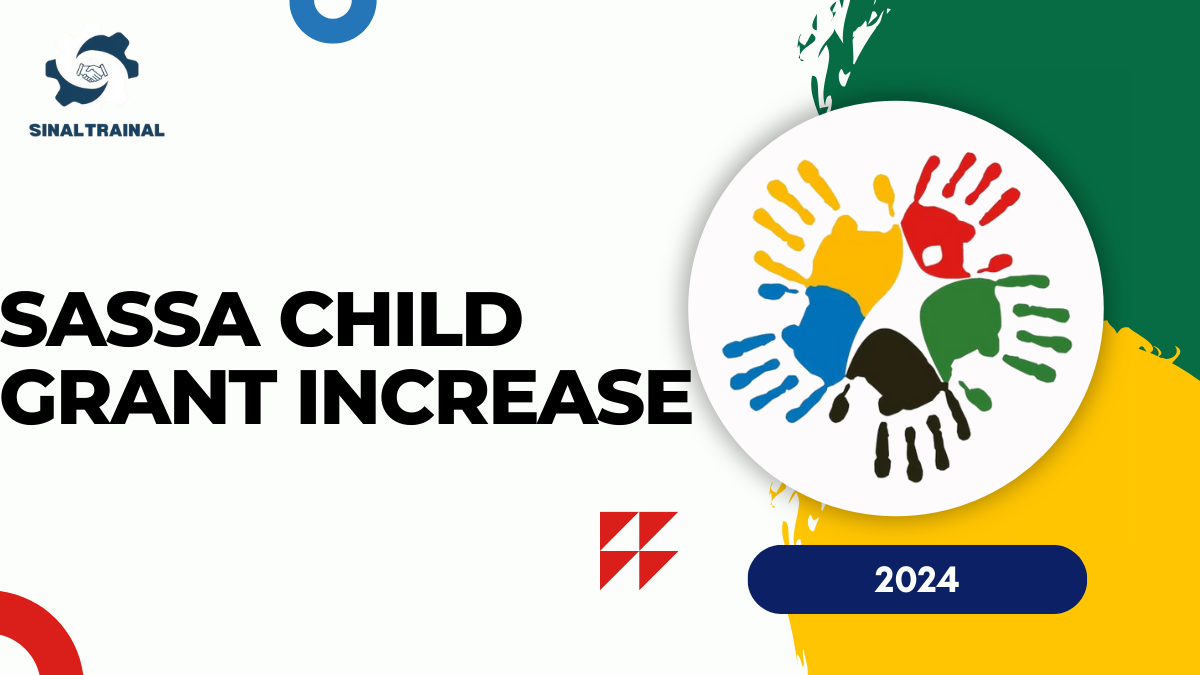South Africa is grappling with a severe socio-economic crisis marked by high unemployment and widespread poverty, significantly impacting social stability and the well-being of vulnerable groups, especially children. Approximately 40% of the working-age population is unemployed, and over 55% of the country’s citizens are living in deep poverty. These conditions create a challenging environment with far-reaching effects on public health, social cohesion, and child development.
SASSA Child Grant Increase in 2024
To counteract these issues, the South African government has established a Child Support Grant as a key safety net for struggling families. Currently, around 13.2 million children benefit from this grant, which aims to provide financial support to families unable to meet basic needs. Despite its intent, the grant amount remains insufficient:
- Monthly Grant Amount: R530 per child
- Food Poverty Line: R760 per month
The R530 grant falls nearly 30% below the food poverty line, indicating a gap in financial support that leaves families struggling to provide adequate nutrition and basic needs. For example, beneficiaries like Sarah Hlongwane, who cares for a family of 12, face immense challenges in managing limited funds to cover food, transportation to school, and housing costs.
Proposed Measures to Combat Poverty and Economic Instability
To address these socio-economic challenges, experts and policymakers have proposed several measures focused on both immediate relief and long-term structural reforms. These recommendations aim to enhance the efficacy of current poverty alleviation efforts and reduce economic pressure on vulnerable populations.
1. Expansion of VAT Exemptions
The Government of National Unity (GNU) has proposed expanding the list of essential food items exempt from value-added tax (VAT). By eliminating VAT on more basic necessities, the government intends to lower the cost of these goods and indirectly increase the purchasing power of low-income households. This measure is seen as a direct way to reduce financial strain and make essential food items more accessible.
2. Capping Administered Prices
Economic analysts like Mervyn Abrahams suggest capping administered prices on essential services such as electricity and fuel. Administered price hikes often disproportionately affect low-income families by raising their cost of living. By regulating and stabilizing these prices, the government can help protect families from sudden increases that exacerbate their financial challenges.
3. Increasing the Child Support Grant
One of the most critical recommendations from economic justice advocates is to raise the Child Support Grant to at least meet, or ideally exceed, the food poverty line of R760 per month. An increase in the grant would provide immediate financial relief to families and significantly enhance their ability to meet basic nutritional and other essential needs.
Addressing Long-Term Health and Developmental Concerns
Experts warn that the long-term consequences of poverty are particularly severe for children, manifesting in issues such as stunting and poor health outcomes. Currently, stunting—a severe form of chronic malnutrition—affects roughly 30% of boys and 25% of girls under the age of five in South Africa. This condition leads to cognitive and physical impairments that hinder educational performance and increase vulnerability to illnesses.
The government can help alleviate these risks and foster healthier development by increasing the child support grant and improving access to nutrition. Complementary initiatives in education and health services are also essential to supporting children’s academic and economic potential later in life.
Economic and Social Implications of Poverty
The enduring economic hardships faced by many South African families have deep and lasting consequences. The prevalence of malnutrition and stunted growth among children reflects a broader issue of social inequality that perpetuates cycles of poverty. Without substantial intervention, these conditions will continue to affect children’s educational outcomes, future earning potential, and overall social mobility.
Conclusion
South Africa’s socio-economic crisis demands a comprehensive strategy to alleviate poverty and reinforce social security measures. Immediate actions like increasing the Child Support Grant and stabilizing essential service costs are pivotal in addressing the urgent needs of vulnerable populations.
However, long-term structural changes, such as improving food accessibility and supporting children’s development, are equally crucial for achieving sustainable progress. By adopting a multi-faceted approach, the government can create a more resilient social safety net and mitigate the harsh realities faced by millions of South Africans.
Click here to know more.

Arvind, an exam specialist with a passion for education, writes comprehensive articles on exam results and admit cards. His expertise ensures students receive reliable information and useful tips to excel in their exams.
